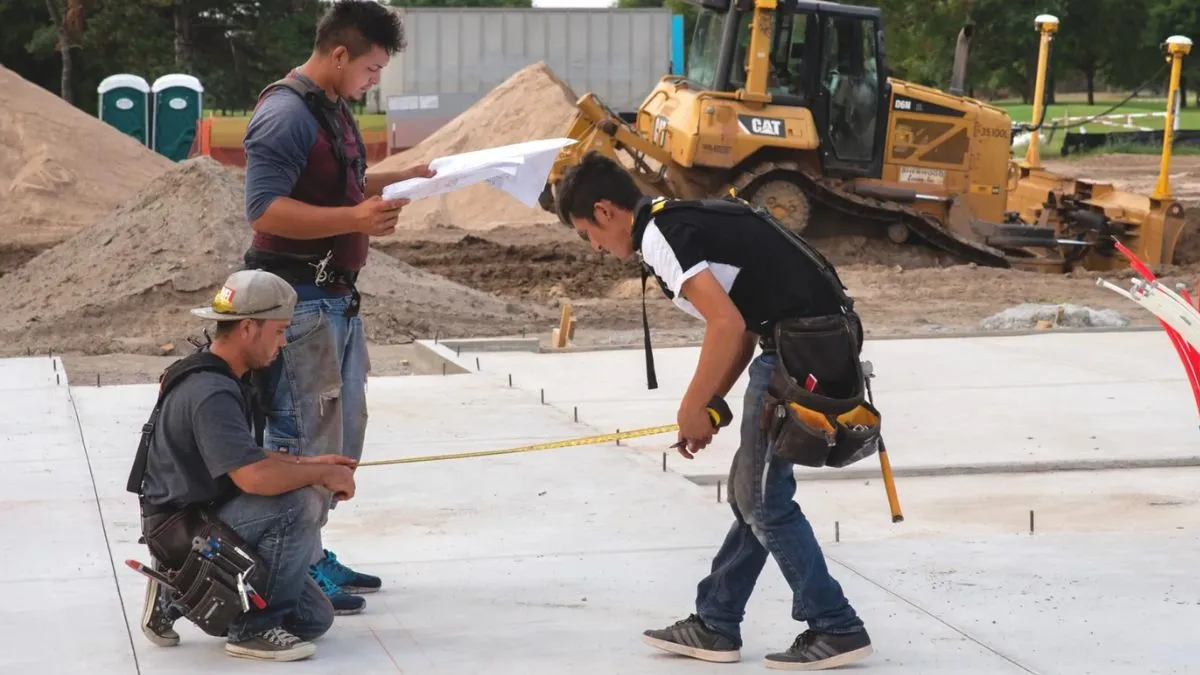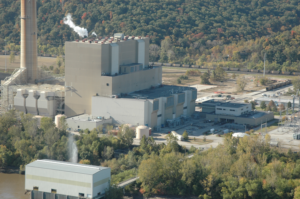9:33
News Story
Kansas City home builders push back on energy efficiency rules, blame them for housing crunch
The Kansas City Council gave homebuilders new rules last year designed to make housing easier on the environment.
Those rules told them what kind of windows to install, how well the walls should be insulated and how efficient the heating and air conditioning systems should be.
Developers now blame those rules for a construction slowdown that’s keeping the housing market tight and posing obstacles to making more of those homes affordable to more people.
But environmentalists say the new code needs more time to work. Ditching it, they contend, will lead to construction of energy-hog homes, adding to global climate change, and stick owners and tenants with higher energy bills.
“It will lead to less efficient and more costly homes,” said Billy Davies, conservation program coordinator for the Missouri chapter of the Sierra Club.
Some regional homebuilders want the city to relax the energy-efficiency rules of the building code it put into action last year. Rather than a rigorous checklist that dictates specifics, they want a general scoring system that gives them options to hit the mark on conserving energy. That, they say, can help them keep costs down and keep housing more affordable.
“What this is intended to do is add flexibility within the process for the contractor, the homebuilder and the homebuyer,” said Will Ruder, the executive vice president of the Home Builders Association of Greater Kansas City.
Groups defending the existing, stricter code see it as the only way for Kansas City to hit its goal of reducing greenhouse gas emissions 100% by 2040.
Buildings play a critical role in this effort, as they are responsible for 40% of greenhouse gas emissions, said architecture instructor at the University of Missouri-Kansas City Dominic Musso. “So something needs to be done if we’re going to create as big of an impact,” he said.
What would change?
The Kansas City Council adopted the 2021 International Energy Conservation Code in July 2023. That code offers builders three ways to comply with its energy standards.
However, homebuilders want more flexibility. They say they’re willing to build energy-efficient housing, but they just want to figure out the best way to do that themselves. So they’ve suggested a fourth option: achieving a Home Energy Rating System score of 68 or lower to qualify for permits.
The HERS scale, created by the Residential Energy Services Network, uses a baseline score of 100 to represent the energy use of a home built to the 2006 International Energy Conservation Code. The lower the score, the better the energy efficiency.
But Davies said that the new proposal sets the standard too low by referring to energy standards set almost two decades ago. And he said the standard isn’t tough enough. In California, new homes average a HERS score of 18.
“This is a score that is so easy to meet,” he said, “that it practically makes the code null and void.”
But Ruder with the homebuilders group said a HERS score of 68 is equal to the average in suburbs like Overland Park and Prairie Village, making it the lowest and most energy-efficient score in the metro.
The city code adopted last year requires more effective wall insulation, energy-efficient furnaces and updated windows that help maintain indoor temperatures.
The homebuilders want the leeway to upgrade windows, walls and furnaces to different standards so long as the home produces an energy rating of 68 or lower.
Ruder said that would avoid wasted expenses for buyers.
Davies said that the current energy code is crucial for protecting residents from the impacts of climate change.
“What (the homebuilders’ proposed change) does is create a loophole in Kansas City’s ordinance by weakening the energy policy and allowing developers to build more cheaply,” he said.
Davies said that he is also concerned that the proposed ordinance only requires energy testing for the first home in a development plan, which could lead to undetected issues and increased costs for homeowners.
“Imagine if there’s no testing,” he said. “Then the occupant could learn a year after they moved in that their utility bill is really high — there’s some kind of leak or other issues.”
Ruder said that builders want the City Council to change the language at its next meeting (July 23) to ensure that every home undergoes energy inspections.
Has the green building code impacted affordable housing?
Builders blame the current energy code for Kansas City’s housing shortage, partly for slowing down the rate building permits get approved.
The city averaged 60 permits per month between October 2023 and June, Ruder said. That same nine-month period averaged 66 permits a month over the last two years and 85 permits a month over the last four years.
Davies said that a drop in permits is common when new codes are introduced. He said construction workers who have already adapted to the current code shouldn’t have to learn a new one so soon.
“Kansas City needs to give the experts in the building community who want to work with this (2021) code more time to make it happen,” Davies said.
Steven Bennett, a professor in the Construction Management department at Johnson County Community College, said that Kansas City has historically had a slow permit process. But he finds the delays over the last nine months excessive. He said nearby cities typically need one to two months to adapt to new building codes.
What do the numbers say?
The Home Builders Association estimated that following the current standard can add up to $31,000 to the price of a 2,400-square-foot, two-story home. Bennett, who has also taught classes on green building, agrees. He said that while builders should strive for better energy efficiency, the city’s existing energy standards are too pricey.
“It’s going to impact the owner’s cost to build, which in turn increases rent and lease costs for those utilizing these homes,” Bennett said.
He said that the code increases home construction costs by up to 30%.
However, the U.S. Department of Housing and Urban Development states that the international standards adopted in 2021 add about $7,200 to the cost of a single-family home.
Musso at UMKC believes that the added expenses from an updated energy code are worthwhile.
“You don’t want to do it cheap up front and then have everything not give you the performance that it should,” he said.
Conservationists agree. They say that the money residents will save on utility bills will eventually offset the upfront cost of building to the city’s current standard. The U.S. Department of Energy found that the average new homeowner in Missouri can expect to save $677 annually on their utility bills, which average out to $2,603 annually.
That would take roughly 10 years to break even under HUD’s upfront cost estimation.
But homebuilders have different ideas about the cost-benefit ratio for homeowners.
Bennett said that in his experience, savings aren’t as great as significant as energy agencies claim. Even if they are, he questions the value.
“If you saw a home with a break-even deal in 10 years, I don’t know that I would advise you to do it,” he said. “You’re probably going to move out and never see that savings.”
The Home Builders Association calculated that utility savings would only be $90 to $125 per year for a 1,400-square-foot starter home, using average gas prices from Spire and average electric costs from Evergy, Ruder said.
This article first appeared on Beacon: Kansas City and is republished here under a Creative Commons license.![]()
Our stories may be republished online or in print under Creative Commons license CC BY-NC-ND 4.0. We ask that you edit only for style or to shorten, provide proper attribution and link to our website. AP and Getty images may not be republished. Please see our republishing guidelines for use of any other photos and graphics.





